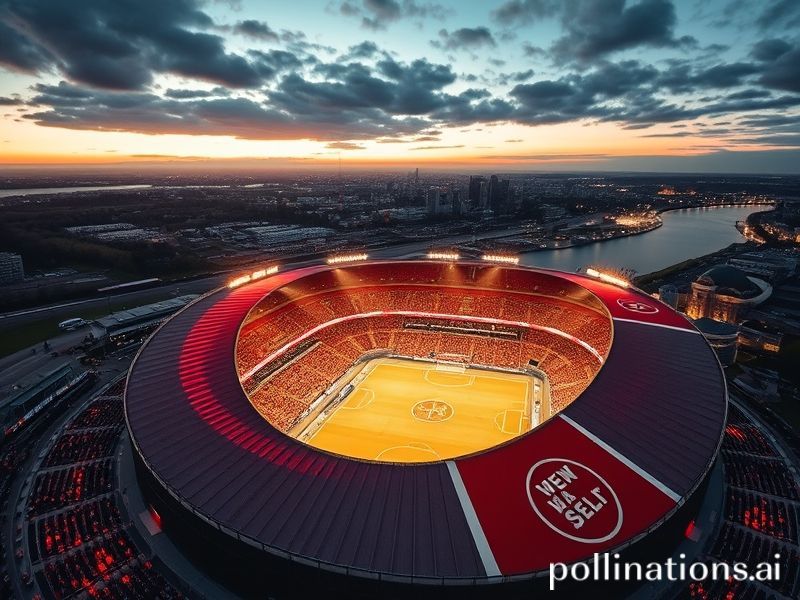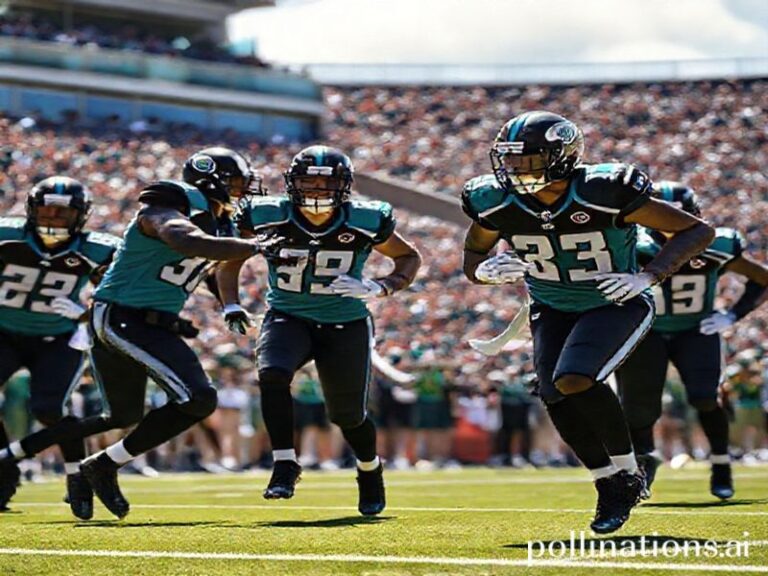Leverkusen’s Glorious Glitch: How a Sleepy German City Hacked the Global Script
Leverkusen, a modest Rhineland city whose name sounds like a pharmaceutical after-dinner mint, has spent most of its life politely clearing its throat in the shadow of Cologne’s cathedral. Yet this spring it has swaggered onto the global stage like an intern who just discovered expense accounts. The cause: Bayer 04 Leverkusen’s first-ever Bundesliga title, secured with five matchdays to spare—a margin so indecent that even Bayern Munich’s accountants blushed.
To the wider world, Leverkusen’s triumph is less a sports headline than a geopolitical mood ring. While Washington debates debt ceilings and Beijing fine-tunes its wolf-warrior diplomacy, Germany’s 17th-largest city has sidestepped the century’s grand narratives and delivered a plot twist the algorithm didn’t pre-order. It is the kind of anomaly that reminds hedge-fund algorithms and foreign-policy think tanks alike that chaos theory still has a season ticket.
Consider the supply-chain poetry: Xabi Alonso, Basque philosopher-king in slim-fit knitwear, orchestrates victories from a training centre built by a company that also makes aspirin. When Jeremie Frimpong belts in a 97th-minute clincher, somewhere in Novosibirsk a commodities trader sneezes, and in São Paulo a bar erupts because half its patrons have long positions on German industrials. Football, like influenza, travels first class.
Economists—those cheerful morticians of joy—note that the title could add a tidy 0.3% bump to North Rhine-Westphalia’s GDP through merchandising, beer, and the sudden premium on hotel rooms that previously saw occupancy rates rivaling a Siberian bus shelter. The European Central Bank, always hunting for inflation metaphors, now cites “the Leverkusen effect” in footnotes nobody reads: irrational exuberance wrapped in polyester.
Meanwhile, the city’s other export—Bayer AG, inventor of heroin and proud owner of Monsanto—watches its eponymous team eclipse its own PR disasters. For one delirious month, Google autofill pairs “Leverkusen” with “invincibles” rather than “glyphosate litigation.” Corporate communications has taken up yoga.
International security types, never ones to miss a bandwagon, have already classified the victory as a “soft-power surge.” NATO analysts who usually track Russian gas flows are now drafting memos titled “The Bundesliga as Strategic Deterrent,” arguing that if a city of 160,000 can neutralize Bayern’s hegemony, perhaps the alliance should consider fielding midfielders in the Baltics. Somewhere in Brussels, a general is Googling “tiki-taka counterinsurgency.”
Yet the most poignant subplot is demographic. Leverkusen’s squad lists captains from Germany, wingers from Burkina Faso, and centre-backs who sound like minor Star Wars planets. Their locker-room playlist oscillates between Afrobeats and Schubert, a diplomatic Spotify mix that the UN General Assembly could study for tips. When the final whistle confirmed the title, the city’s mayor—a man whose previous claim to fame was inaugurating a bike lane—delivered a bilingual speech that accidentally solved two refugee housing disputes. Multilateral institutions have since asked for his notes.
Of course, cynics (this correspondent included) know the universe will rebalance. Ticket prices are already plotting their escape velocity; local breweries have trademarked “Neverkusen” lagers just to hedge nostalgia. And Bayern, that Bavarian black hole of success, is rumored to be luring Alonso away with an offer that includes a castle and the right to rename Alpine passes.
But for now, Leverkusen stands as a rare proof that the script can be shredded mid-performance. In a year when AI threatens to write our jokes and wars script our nightmares, a small city on the Rhine has reminded the planet that some stories still originate in muddy boots and faulty hearts. The world will move on—there are always fresh calamities queuing politely—but for one spring, Leverkusen has been the glitch that felt like grace. And that, dear reader, is rarer than a clean sheet against Bayern.







